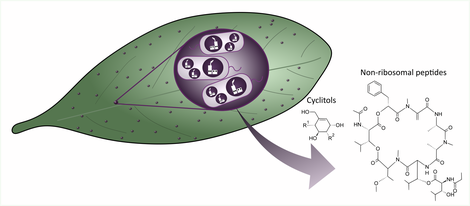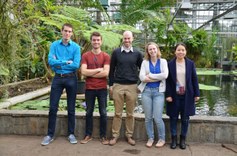Research in the group of Aurelien Carlier
Plant-bacteria interactions
We are interested in the interactions between bacteria and their hosts. The microbiota play a critical role for the health and growth of plants, but how beneficial microbes are recognized remains poorly understood. This is especially true in the phyllosphere, the compartment composed of the above-ground organs of the plant which includes stem, leaves, flowers and fruits. Recent evidence suggests that several plant species have evolved or co-opted an ancient pathway enabling symbiont capture and consistent vertical transmission. Gaining insight into the mechanisms used to recognize beneficial symbionts at the leaf surface is essential in order to leverage the richness and diversity of the plant microbiome in agriculture.
Leaf nodule symbiosis
More specifically, our research focuses on obligate or vertically-transmitted mutualistic symbioses. These are notoriously difficult to study by traditional methods because molecular processes between the host and symbionts have often been tangled by millions of years of co-evolution. However, they are the most promising in terms of application and understanding of co-evolution between host and bacteria. Obligate symbioses can be viewed as some of the most successful biological partnerships and a tremendous source of biological innovation. Indeed, some ancient forms of obligate symbioses have shaped life and the world, giving rise to modern mitochondria and chloroplasts, for example.
If you are interested in joining the lab for MSc or PhD studies, please send your CV at Aurelien(dot)Carlier (at) UGent(dot)be
Publications

